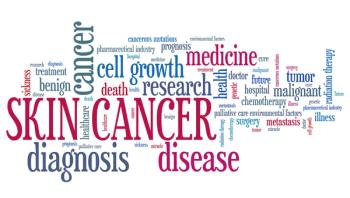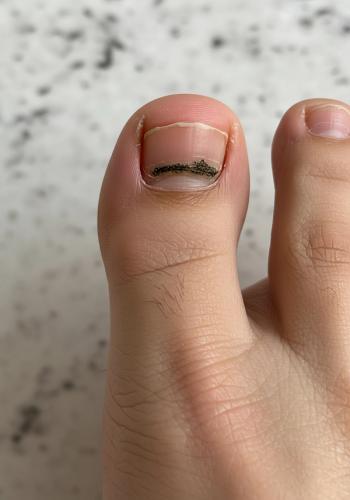
Common Supplement Shows Greater Skin Cancer Prevention When Started Early
In a large retrospective study of veterans, the B3 derivative nicotinamide was found to be effective at reducing the risk of squamous cell carcinoma.
Patients who started taking a common supplement after their first skin cancer diagnosis cut their risk of developing another cancer by more than half, according to the largest study to date on the over-the-counter product.
The
Led by Lee Wheless, M.D., Ph.D., an assistant professor of dermatology at Vanderbilt University Medical Center, the study provides guidance on when to use a supplement that roughly 75% of dermatologic surgeons already recommend for prevention. The findings suggest that starting nicotinamide early in a patient’s skin cancer journey is key to maximizing its protective benefits.
“The results of this cohort study suggest that there is a decreased risk of skin cancer among patients treated with nicotinamide, with the greatest effect seen when initiated after the first skin cancer,” the study authors wrote.
Nicotinamide, typically taken as 500 milligrams twice daily, helps cells repair damage caused by sunlight, reducing the risk of both basal cell carcinoma and squamous cell carcinoma. The supplement has gained attention as a safe prevention option, particularly for people at high risk of repeat skin cancers. Previous studies were smaller and sometimes inconclusive, but this research provides the most comprehensive evidence to date.
This study matched nearly 12,300 veterans taking nicotinamide with approximately 21,500 similar patients not taking the supplement, tracking them over several years to measure new skin cancer development. Across the full group, nicotinamide users had about a 14% lower risk of developing new skin cancers. The supplement was most effective against squamous cell carcinoma, reducing risk by about 20% overall.
Among patients who had developed only one or two prior skin cancers, the protective effects remained strong, with risk reductions close to the 50% level seen in those who started after their first cancer. Patients who waited until after their seventh skin cancer to start nicotinamide saw virtually no benefit from the supplement.
The timing findings align with how skin cancer risk accelerates after each diagnosis. Previous research has shown that once patients develop their first skin cancer, the rates of subsequent cancers increase with each new diagnosis, creating a window where early intervention could be most beneficial.
Solid organ transplant recipients, who face elevated skin cancer risk due to immunosuppressive medications, saw more limited benefits from nicotinamide in this study. However, transplant patients with only one or two prior skin cancers still experienced a 53% reduction in cutaneous squamous cell carcinoma risk when taking the supplement.
The study also showed that patients taking nicotinamide from a month to a year experienced similar protective benefits, suggesting that long-term supplementation may not be necessary for some patients. Most participants had been exposed to other skin cancer prevention treatments, including topical therapies and photodynamic therapy, but nicotinamide showed additional protective effects even after accounting for these interventions.
Because the study was observational and relied on veterans’ health records, the authors cautioned that the findings may not apply equally to women or younger patients, and a randomized clinical trial is still needed.
Newsletter
Get the latest industry news, event updates, and more from Managed healthcare Executive.























